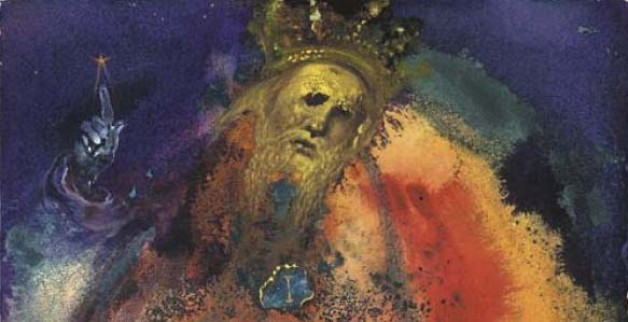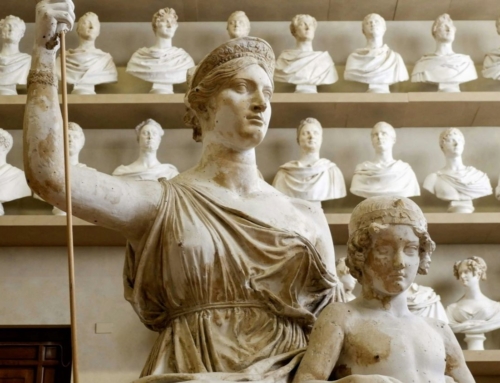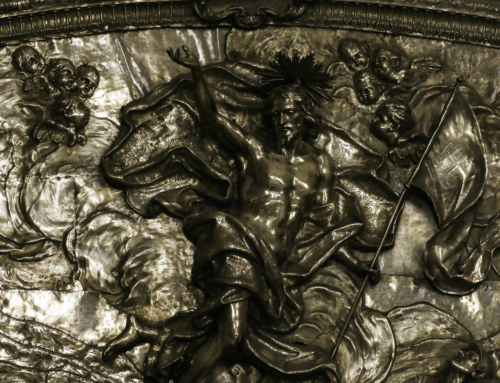Restlessness is present in myriad facets of human existence. By “restlessness” here I simply have in mind the absence of contentment—a recognition that the current state of affairs is insufficient or unsatisfactory. In my own life, I can readily recall the experience of Sunday evenings in high school. Having slept in, been to mass, watched two football games, and finished dinner, I would grapple with the realization that it all began again the next morning and that the two-day reprieve, once hailed as a salvific respite on Friday afternoon, had failed to support the weight of my expectation. I was in the throes of the Sunday funk. I was not content.
It can be instructive to ask oneself, “When was the last time that I was completely satisfied?” Sometimes we can pinpoint a day in the middle of a great vacation, an ideal family celebration, or a picture-perfect holiday, but memories of pure, unadulterated enjoyment are rare. That being said, even the limited contentment we do experience often proves impermanent. The common course of events, while not necessarily riddled with agitation, is often mingled with the tacit recognition of mild dissatisfaction. Again, here I do not mean to suggest that man as man is chronically depressed, but that, upon reflection, most, if not all, will admit that the full weight of their desire has not yet been adequately addressed by the goods encountered in life. It seems that the goods available in this life are not proportioned to the power of man’s desiring. It might be suggested that, in a manner of speaking, man’s desire is infinite, and the finite goods he encounters are incapable of fully satisfying his inexorable need.
Now, to the question of “Why?” Has nature created something in vain? Is man impotent to attain his end? While it is far beyond the scope of this entry to address the full magnitude of this question, I would like to suggest that restlessness is a gift impelling us to seek beyond the limited goods of the workaday world for a true horizon of ultimate meaning. To illustrate this point, we will turn to a poem by George Herbert (d. 1633), an Anglican priest and poet. The poem is entitled The Pulley:
When God at first made man,
Having a glass of blessings standing by;
Let us (said he) pour on him all we can:
Let the worlds riches, which dispersed lie,
Contract into a span.So strength first made a way;
Then beauty flow’d, then wisdom, honor, pleasure:
When almost all was out, God made a stay,
Perceiving that alone, of all his treasure,
Rest in the bottom lay.For if I should (said he)
Bestow this jewel also on my creature,
He would adore my gifts instead of me,
And rest in Nature, not the God of Nature:
So both should losers be.Yet let him keep the rest,
But keep them with repining restlessness:
Let him be rich and weary, that, at least,
If goodness lead him not, yet weariness
May toss him to My breast.
In this delightful fictional account of the “deliberation” in the Godhead that frames the creation of man, Herbert supposes that God withholds contentment from man not deviously, but rather as a stroke of mercy. Rather than rest in lower things, God ordained that man might be impelled to seek contentment in the only terminus proportioned to the full weight of his desire—God Himself. Consequently, the restlessness of man is not made to be meaningless and frustrating, but rather teleological (ordered to an end), that is, ordained to his ultimate fulfillment.
We can thereby see that restlessness is bound up with the fact that the goods encountered in this life are not ultimate, but are desired for the sake of something else, namely the last end. In the last end alone does man experience true, perfect, and total contentment and the definitive quenching of restlessness. With the understanding that the last end is fully possessed only in the beatific vision, it follows that restlessness completes its mission only at the culmination of this life; only then is it permitted to end. Restlessness will cease only when man is safely in the hands of the only One capable of providing total fulfillment. Then it will have served its purpose—to toss man to God’s breast.
✠
Image: Salvador Dali, Vanitas Vanitatum (Ecclesiastes 1:12f)







